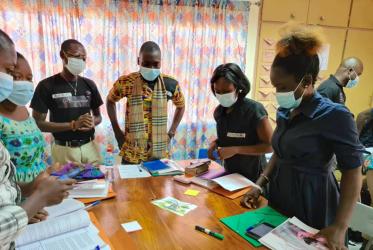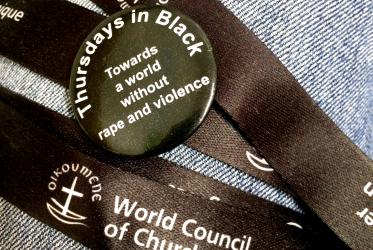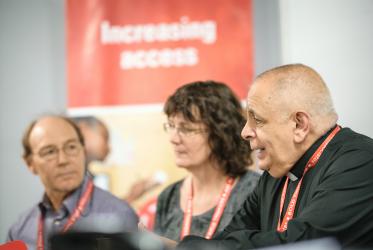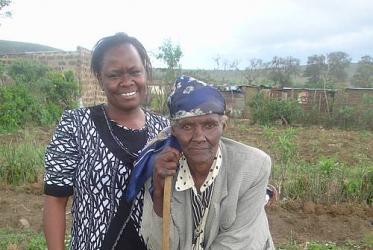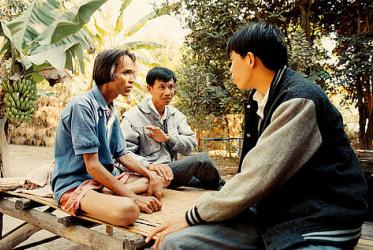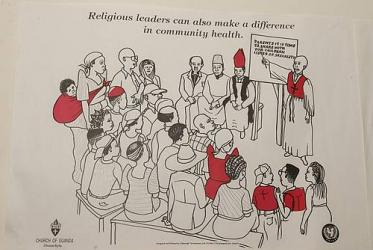Displaying 1 - 14 of 14
Executive Summary
23 March 2024
Honest talk blossoms between youth, theologians in Cote d’Ivoire
14 September 2016
Fighting ignorance, fear and stigma through Bible study
09 December 2011
WCC's HIV work reaches quarter-century mark
30 June 2011
Books key to the battle against HIV and AIDS in Africa
23 February 2011

